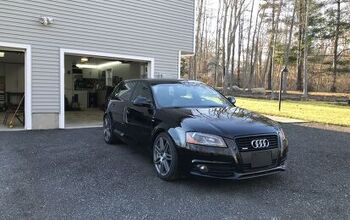Judge Denies GM Bid to Reinstate Racketeering Case Against FCA

General Motors’ attempt to revive its RICO lawsuit has failed after a federal court claimed the new evidence presented was too speculative to start the legal process back up. U.S. District Judge Paul Borman dismissed the case with prejudice in July, calling it a “waste of time,” but GM returned with new evidence it hoped might turn the tables.
Filed in November, the General’s case against FCA claims its rival finagled a labor advantage by bribing UAW officials during key contract negotiations. With a federal corruption case still probing the union, and with Fiat Chrysler’s known involvement, it seems like GM might have had a case here. But Judge Borman didn’t think there was sufficient evidence before, and hasn’t changed his mind since.
Armed with newly claimed evidence, GM updated its complaint to suggest FCA and co-conspirators used a series of bank accounts containing millions of dollars in the Cayman Islands, Italy, Liechtenstein, Luxembourg, Switzerland and Singapore to inflict direct harm upon GM.
From Automotive News:
GM named two former UAW officials — Joe Ashton, who joined GM’s board in 2014 after retiring as the head of the union’s GM department, and former President Dennis Williams — as defendants in its amended complaint, along with Alphons Iacobelli, who left FCA in 2015 and then joined GM. The complaint also makes allegations against former UAW President Ron Gettelfinger, who has not been named or implicated in any previous cases of UAW corruption. Gettelfinger angrily denied the accusations.
GM accused FCA of providing Iacobelli and a family member with “millions of dollars” through funds currently in accounts in Italy, Liechtenstein, Switzerland and Singapore.
FCA said in a filing Monday that GM’s proposed amended complaint was “full of preposterous allegations” and compared its claims to a “third-rate spy movie.”
The corruption charges do have some merit. Both Ashton and Iacobell have been convicted on bribery/union-corruption charges while the others are involved in an ongoing federal probe. But Iacobell’s lawyer, Michael Nedelman, claimed GM had only compiled more allegations without proof and was engaging in a predatory suit while the opportunity presented itself.
It seems Judge Borman agrees. He said there wasn’t sufficient proof and failed to see how it impacted GM to a point that would warrant compensation.
“Today’s decision is disappointing, as the corruption in this case is proven given the many guilty pleas from the ongoing federal investigation,” General Motors said in a statement. “GM’s suit will continue — we will not accept corruption. Civil plaintiffs have the right to pursue their claims, including the right to amend, add new information and take discovery.”
The automaker added that it would appeal the ruling to the Sixth Circuit Court of Appeals.
[Image: Michael Urmann/Shutterstock]

A staunch consumer advocate tracking industry trends and regulation. Before joining TTAC, Matt spent a decade working for marketing and research firms based in NYC. Clients included several of the world’s largest automakers, global tire brands, and aftermarket part suppliers. Dissatisfied with the corporate world and resentful of having to wear suits everyday, he pivoted to writing about cars. Since then, that man has become an ardent supporter of the right-to-repair movement, been interviewed on the auto industry by national radio broadcasts, driven more rental cars than anyone ever should, participated in amateur rallying events, and received the requisite minimum training as sanctioned by the SCCA. Handy with a wrench, Matt grew up surrounded by Detroit auto workers and managed to get a pizza delivery job before he was legally eligible. He later found himself driving box trucks through Manhattan, guaranteeing future sympathy for actual truckers. He continues to conduct research pertaining to the automotive sector as an independent contractor and has since moved back to his native Michigan, closer to where the cars are born. A contrarian, Matt claims to prefer understeer — stating that front and all-wheel drive vehicles cater best to his driving style.
More by Matt Posky
Latest Car Reviews
Read moreLatest Product Reviews
Read moreRecent Comments
- Jalop1991 There is no inflation. Everything is cheaper than it was 5 years ago. SHRIMP AND GRITS!
- ChristianWimmer Exterior and interior look pretty flawless for such a high mileage car. To me this is an indication that it was well-maintained and driven responsibly. It’s not my cup of tea but it’s bound to find an enthusiastic owner out there.And with ANY car, always budget for maintenance.
- Fred I'm a fan and watch every race. I've missed a few of the live races, but ESPN repeats them during more reasonable hours.
- Mikesixes It has potential benefits, but it has potential risks, too. It has inevitable costs, both in the price of the car and in future maintenance. Cars with ABS and airbags have cost me at least 2000 bucks in repairs, and have never saved me from any accidents. I'd rather these features were optional, and let the insurance companies figure out whether they do any good or not, and adjust their rates accordingly.
- Daniel Bridger Bidenomics working.

































Comments
Join the conversation
Don't let the door hit you on the way out Barra. Any "evidence" GM had should have been handed over to the government, where criminal convictions would strengthen GM's case for compensation. If their "evidence" (delusions) aren't strong enough to turn over to government prosecutors, then GM has no case. At some point, FCA will countersue GM for illegally interfering in their merger.
GM need to focus on building vehicles where the real crime is being committed and leave the courtroom stuff alone.